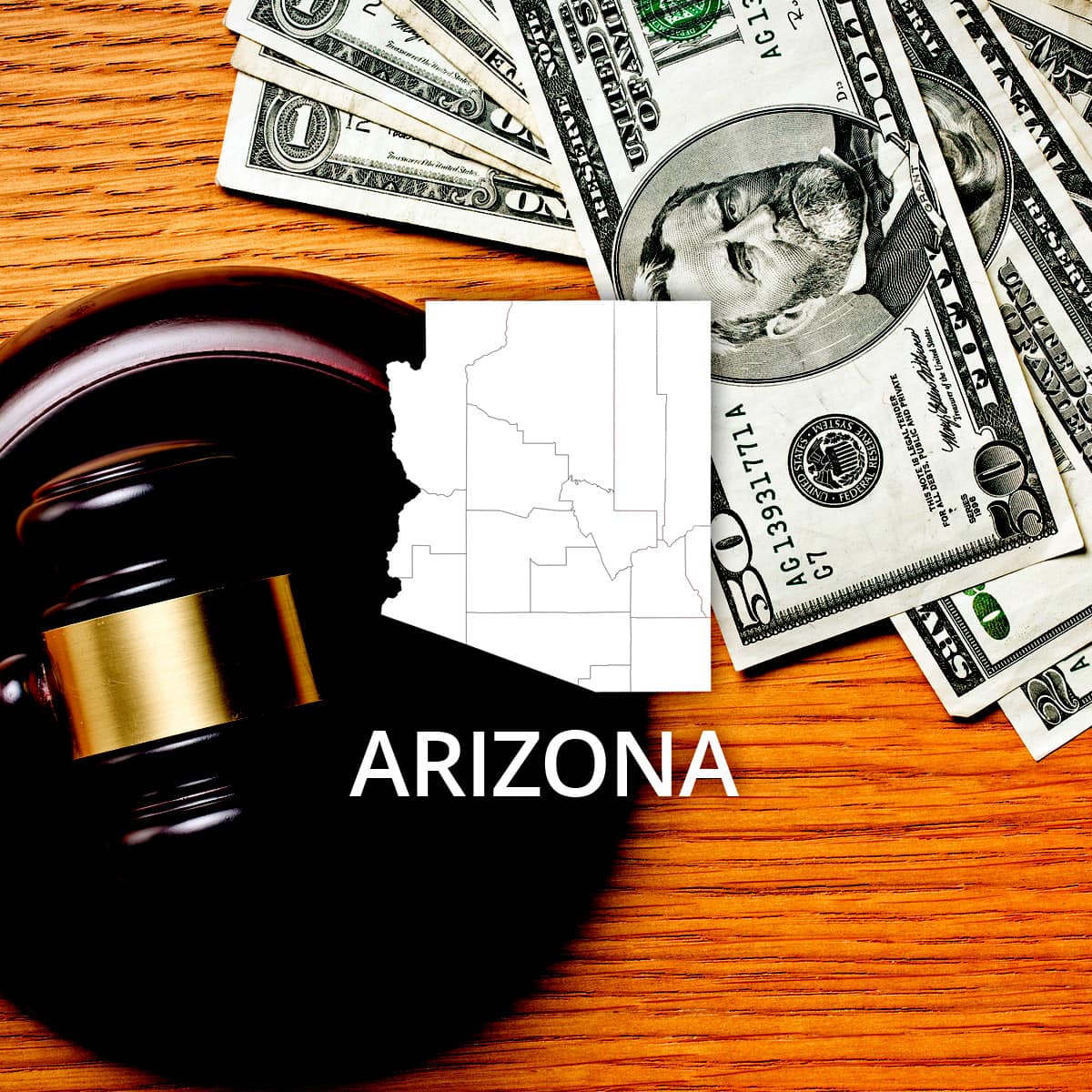 Multiple Bankruptcies: How Often You Can File One?
Multiple Bankruptcies: How Often You Can File One?
Table of Contents
 How to File Bankruptcy in Arizona
How to File Bankruptcy in Arizona
 Filing for bankruptcy is a process under federal jurisdiction, with district courts all throughout The United States. Arizona is home to 3 district courts with 2 additional offices designated for bankruptcy hearings (but not for filing in person). An individual petitioner may opt between Chapter 7 and Chapter 13 bankruptcies depending on their circumstances, while businesses in Arizona are allowed Chapter 11 or Chapter 12 bankruptcies.
Filing for bankruptcy is a process under federal jurisdiction, with district courts all throughout The United States. Arizona is home to 3 district courts with 2 additional offices designated for bankruptcy hearings (but not for filing in person). An individual petitioner may opt between Chapter 7 and Chapter 13 bankruptcies depending on their circumstances, while businesses in Arizona are allowed Chapter 11 or Chapter 12 bankruptcies.
 Arizona Bankruptcy Types: Chapter 7, Chapter 13 & Chapter 11
Arizona Bankruptcy Types: Chapter 7, Chapter 13 & Chapter 11
Filing Bankruptcy in Arizona Chapter 7
Chapter 7 bankruptcy is the process of wiping clean all of a debtor's financial obligations, with the exception of non-dischargeable debts such as federal taxes or child support. A court-appointed trustee will collect all of the assets which are not exempt and sell them to pay for a portion of the debt owed. Chapter 7 is typically the best option for a petitioner with few assets and a large amount of unsecured debt.
Chapter 13 Bankruptcy Arizona Laws
Chapter 13 bankruptcy is a court-structured repayment plan of debt summarized by the petitioner. It is typically paid off in 3 to 5 years and may require the wage earner's paychecks to be garnished for a period of time. Chapter 13 is an option for those who wish to prevent foreclosure on their home, or to keep their assets from being repossessed by their creditors.
Bankruptcy Means Test Arizona
To determine which type of bankruptcy a petitioner may file for, a Means Test is taken to compare the income of the petitioner with the Arizona median income statewide. A person may only file for Chapter 7 bankruptcy if their income is below the median. However, there is still an option for those who qualify for Chapter 7 to file Chapter 13 if they prefer.
Filing Chapter 11 & 12 Bankruptcy in AZ
For businesses in Arizona, Chapter 11 is an option for restructuring debts under the bankruptcy code. This may allow a business to continue operating and repay creditors over time. Chapter 12 is specifically designed for family farmers or fisherman to create and carry out a plan to repay their debts over 3 to 5 years.
 Arizona Bankruptcy Court Forms
Arizona Bankruptcy Court Forms
Official bankruptcy forms for the U.S. Bankruptcy Courts are available at https://www.uscourts.gov/forms/bankruptcy-forms or RecordsFinder.com Court Forms Section.
 Steps to Filing AZ Bankruptcy
Steps to Filing AZ Bankruptcy
- To file for bankruptcy in Arizona, there are multiple steps taken from start to finish. First a petitioner must complete pre-bankruptcy credit counseling and pre-discharge debtor education. The credit counseling must occur before filing and the discharge education afterwards.
- Next, the court must resolve the type of bankruptcy a debtor is eligible for through the Means Test. After an individual determines if they should file for Chapter 7 or 13, the following step is to collect the necessary documentation.
- The debtor must gather paperwork of all major transactions over the last 2 years, a monthly list of living expenses, the secured and unsecured debts incurred, and all assets and possessions. Along with these documents, it is important to have the deeds to any real estate, titles for vehicles, and tax returns for at least 2 years.
- At this time, a debtor must decide whether they will use the services of an attorney or file without one and become educated about the exemptions and specific bankruptcy laws for Arizona.
 How Much Does it Cost to File Bankruptcy in AZ?
How Much Does it Cost to File Bankruptcy in AZ?
The fee for filing Chapter 7 is $306 which may, in some cases, be waived. Chapter 13 has a filing fee of $281 which may not be waived, but can be paid in installments.
 Arizona Bankruptcy Court Locations
Arizona Bankruptcy Court Locations
Arizona has three U.S. Bankruptcy Courts, which are located in Phoenix, Tucson, and Yuma. Additionally, hearings for bankruptcy are held in the Flagstaff and Bullhead City offices, but an individual cannot file in person at these offices.




